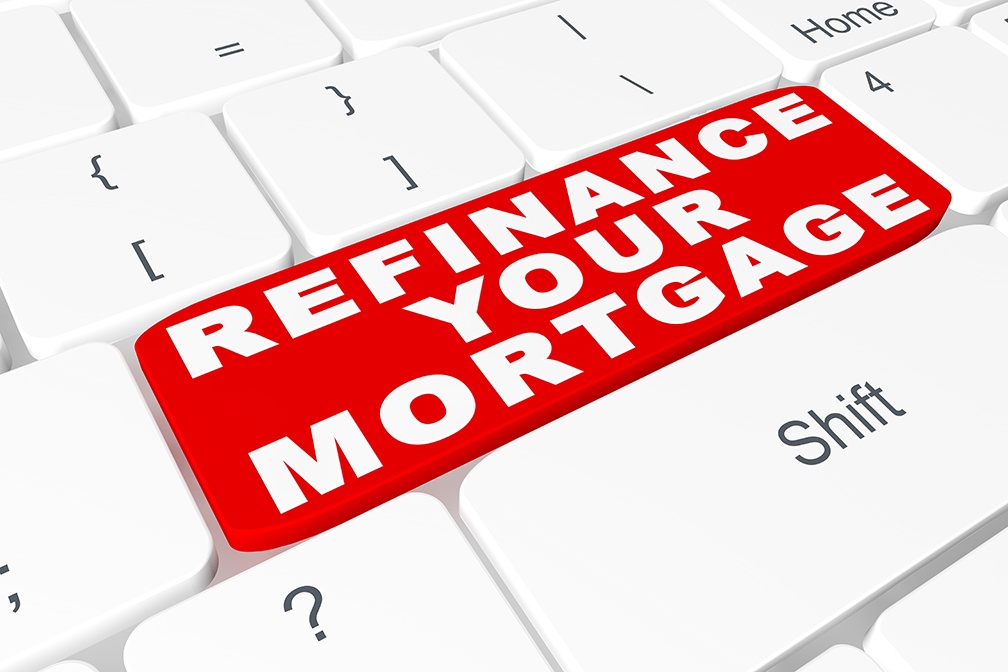How Do I Know If It’s a Good Idea to Refinance My Mortgage?
 Are you interested in paying less per month on your mortgage? Or perhaps you would prefer if your mortgage was paid off a couple of months – or years – faster? If you are a homeowner with a mortgage, one option that is open to you is refinancing. In today’s post, we will explore the topic of mortgage refinancing and how to know if it is a good idea.
Are you interested in paying less per month on your mortgage? Or perhaps you would prefer if your mortgage was paid off a couple of months – or years – faster? If you are a homeowner with a mortgage, one option that is open to you is refinancing. In today’s post, we will explore the topic of mortgage refinancing and how to know if it is a good idea.
How Does Refinancing Work?
In short, refinancing is a process in which pay off your existing mortgage and borrow a new mortgage under a different set of terms. In most cases, homeowners will use the funds from the new mortgage to pay off the old one. Depending on the terms of your new mortgage, there may or may not be cash left over which you can use to invest, pay down debts, make renovations or for other purposes.
Refinancing To A Lower Interest Rate
Mortgage interest rates tend to fluctuate over time and because of this, refinancing to a mortgage with a lower rate is quite popular. If you initially borrowed your mortgage when interest rates were at 5%, you may be able to lock-in a new mortgage at a lower rate. Note that it can be tough to try to “time” the mortgage market, so check in with your mortgage professional to find out if the time is right.
Refinancing For Lower Monthly Payments
Another great use of refinancing is to reduce the monthly payment required on the mortgage. If you have ten years remaining on a 20-year mortgage, refinancing to extend the payments out to 15 years will lower the monthly payment.
Refinancing To Eliminate Other Debts
Finally, many homeowners will refinance their mortgage to use some of the home’s equity to pay off other debts. For example, a family might have $25,000 in debts that are being charged a higher interest rate than their mortgage. If they have built up enough equity, they can refinance and draw out $25,000 from the home’s value. This shifts the debt from the higher interest areas into the mortgage, where it can be paid off over time.
As you can see, there are many reasons why you might want to refinance your mortgage. To learn more about the refinancing process, or to discuss your options, contact us today. Our professional team of mortgage advisors is ready to help you choose the path that best suits your financial needs.

 Refinancing a mortgage can provide a homeowner with many benefits, and many are interested in refinancing their traditional mortgage into an FHA mortgage to take advantage of low interest rates. Depending on the specific circumstances, this step may lower the monthly payment, reduce interest charges, adjust the loan term so that it is more beneficial for achieving financial goals and more. Those who are interested in refinancing in an FHA mortgage may consider these steps.
Refinancing a mortgage can provide a homeowner with many benefits, and many are interested in refinancing their traditional mortgage into an FHA mortgage to take advantage of low interest rates. Depending on the specific circumstances, this step may lower the monthly payment, reduce interest charges, adjust the loan term so that it is more beneficial for achieving financial goals and more. Those who are interested in refinancing in an FHA mortgage may consider these steps. For many people, investing in a house is one of the most important purchases they will make in their lifetime. However, alongside having the comfort of your own home, there are many financial benefits associated with buying in. If you’re currently perusing the market for opportunities, here are some reasons to consider investing a little sooner.
For many people, investing in a house is one of the most important purchases they will make in their lifetime. However, alongside having the comfort of your own home, there are many financial benefits associated with buying in. If you’re currently perusing the market for opportunities, here are some reasons to consider investing a little sooner. Ask any friend or family member that owns a home and they will share that it takes a bit of management to keep all the expenses under control. Let’s explore the concept of PITI and why it is vital to have a clear picture of how much your home is costing you each month.
Ask any friend or family member that owns a home and they will share that it takes a bit of management to keep all the expenses under control. Let’s explore the concept of PITI and why it is vital to have a clear picture of how much your home is costing you each month. Are you a retired individual looking for ways to increase your financial security? If so, you may have heard of a home equity conversion mortgage, more commonly known as a reverse mortgage. Used correctly, this is one of the most effective financial products for retirees who own their home.
Are you a retired individual looking for ways to increase your financial security? If so, you may have heard of a home equity conversion mortgage, more commonly known as a reverse mortgage. Used correctly, this is one of the most effective financial products for retirees who own their home.